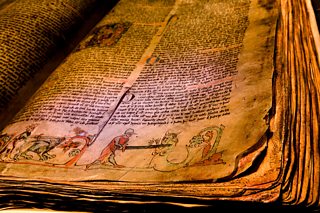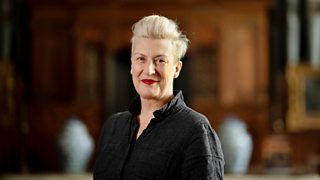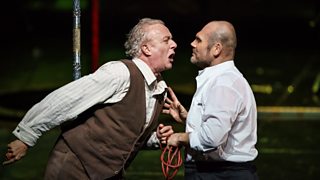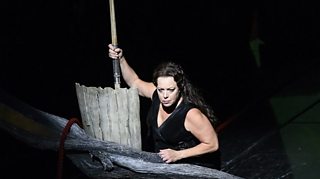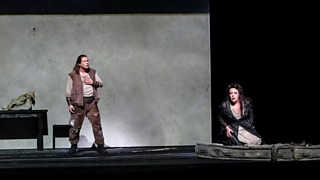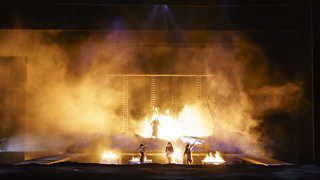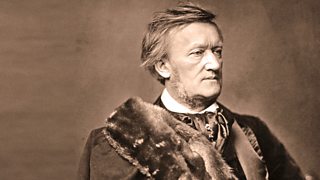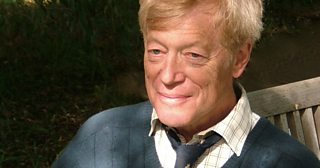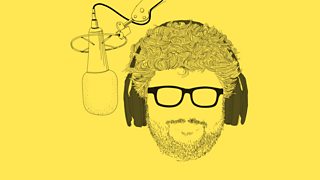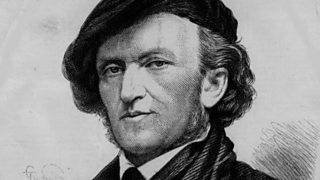"Put down everything and immerse yourself!"
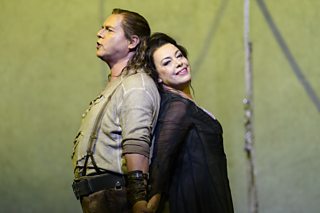
Wagner’s Der Ring des Nibelungen (The Ring of the Nibelung) is the largest musico-dramatic work ever written, and for many people also the greatest. Some call it the Game of Thrones of classical music.
Its size and its quality are not unrelated; in four separate dramas, adding up to 14 hours or more of music, through the struggles of Gods and mortals, heroes and heroines and evil characters (including a fearsome dragon) Wagner is able to explore in depth a range of issues which are central to any civilised person’s life: which things do we value most, and what sacrifices have to be made, if any, of some of those things if we are to have others?
�鶹�� Radio 3 is presenting all four of the Ring operas, in a 2018 production from the Royal Opera House, Covent Garden, conducted by Antonio Pappano – on successive evenings.
On this page you'll find three video introductions filmed at the Royal Opera House and links to fascinating and fun articles introducing you to classical music's original – and ultimate – fantasy boxset.
Production photography © ROH 2018 by Bill Cooper
Let's start with the schedule of performances. On every programme page you'll find a synopsis of each opera and a production photo gallery.
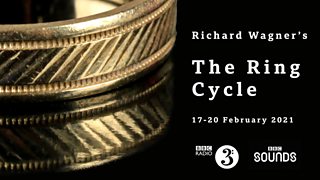
- Das Rheingold: Wednesday 17 February at 7pm.
- Die Walküre: Thursday 18 February at 5pm.
- Siegfried: Friday 19 February at 5pm.
- Götterdämmerung: Saturday 20 February at 5pm
For boxset listening, use this link to Opera on 3's Ring Cycle page.
Three minutes with Sir Antonio Pappano – why you should drop everything and listen to the Ring...

"Put down everything and immerse yourself!"
Watch Sir Antonio Pappano introduce Wagner's Ring specially for Radio 3 listeners.
What's the Ring about?
The very opening of the Ring, the prelude to Das Rheingold not only evokes the bottom of the Rhine, but also the beginning of everything. As soon as life appears, in the form of teasing and lovely Rhinemaidens, lust comes into the world, in the form of an ugly dwarf, Alberich (the Nibelung of the whole work’s title), who desires them but is repulsed by them, so that he renounces love in return for the Rhine gold which they are supposed to guard, and which is alleged to give its owner power over the whole world.
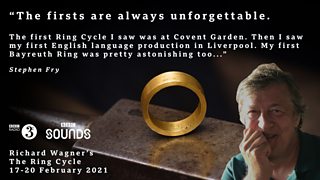
Seeing and listening to it in a short space of time is overwhelming in a way, and on a scale that has no parallel in the whole of human achievement.
So immediately we are confronted with the issue of the relationship between Love and Power; that is explored in ever-widening circles, as the chief god Wotan, who has limitless aspirations after beauty, truth and goodness, also finds that he can only realise them by compromise and corruption. The situation in the first drama seems so dark that a new start is required – but how? Can the beings responsible for the old mess create new beings who won’t be implicated in it – heroes who are free, yet do what the old guard wants them to?
As the Ring progresses we are flabbergasted by the range of issues it confronts, the vividness of the characters who fill it, above all by the ceaseless inventiveness and inspiration of its music, which Wagner composed over a long span. He began writing the music in 1854, and only completed it 20 years later, though with a 12-year gap after Act II of Siegfried, the third part of the four-opera tetralogy (though Wagner insisted that it was “a trilogy with a preliminary evening”).
During that time Wagner grew immeasurably as a composer, and his attitude to the questions posed in the Ring altered drastically too, but his creative integrity was such that nothing in the work could be mistaken for anything in any other of his operas (or dramas, if you prefer), and the construction of the whole is so strong that, powerful as its individual parts are, the cumulative effect of seeing and listening to it in a short space of time is overwhelming in a way, and on a scale, that has no parallel in the whole of human achievement. You feel, at least for a bit, transformed and uplifted by the Ring, even though it shows the world in a state of terminal disintegration.
© Michael Tanner/�鶹��
How do they do that? Meet the cast to find out...

Why The Royal Opera love performing Die Walküre
The conductor, director and singers on the challenges and rewards of performing the opera
Six ways you learned about Wagner's Ring Cycle without even noticing
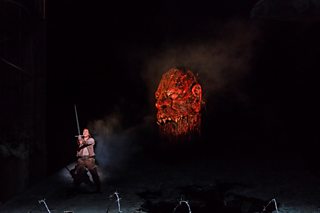
It’s hard to overestimate how profound the impact of The Ring was in its time. Even now, the operas remain famous for their scale and complexity, and for the demands they make on both singers and audience. Running all four operas back-to-back takes around 15 hours. So where do you start? And what if we told you that you probably already have? From poetry to film via fantasy box sets, your guide to how Wagner’s Ring Cycle has left an indelible mark on Western culture is here.
Revealed: the musical secrets of Die Walküre
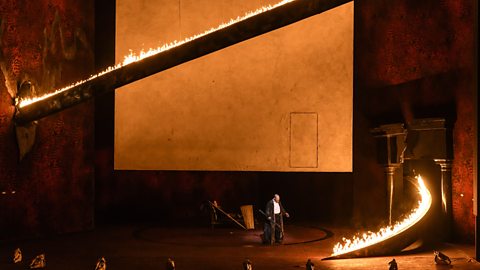
How to compose an epic score
Répétiteur Susanna Stranders explores the music of Richard Wagner's Die Walküre.
-
![]()
The Ring? It's a bit of a saga...
Wagner’s Ring cycle draws on the stories of heroes and gods that are told in some of the great literary works written in medieval Iceland. From around the 10th century are the great Poetic Eddas: mythological and heroic poems that tell of the Gods – Oðin, Loki and also heroes such as Sigurd the dragon slayer. Radio 3 controller Alan Davey is your guide to the Icelandic sagas.
-
![]()
Ring resounding
Dame Sarah Connolly (Fricka in the Royal Opera House's production of Wagner's Ring Cycle), discusses the challenges of performing this 15-hour operatic epic with Samira Ahmed in Radio 4's Front Row.
-
![]()
Das Rheingold – the plot essentials
Read a concise synopsis of the first Ring opera.
-
![]()
Die Walküre – the plot essentials
Read a concise synopsis of the second Ring opera.
-
![]()
Siegfried – the plot essentials
Read a concise synopsis of the third Ring opera.
-
![]()
Götterdämmerung – the plot essentials
Read a concise synopsis of the fourth Ring opera.
-
![]()
Leitmotifs in Wagner's Ring Cycle
Wagner expert Dr John Deathridge on the use of leitmotifs in Wagner's epic operas.
-
![]()
Roger Scruton: The Ring of Truth
Tom Service in conversation with the late Roger Scruton about the composer's philosophical influences.
-
![]()
The Listening Service
Tom Service explores classical music’s ultimate binge-listening box set – The Ring.
-
![]()
Composer of the Week – Richard Wagner
Donald Macleod explores the life and controversial music of Richard Wagner.
